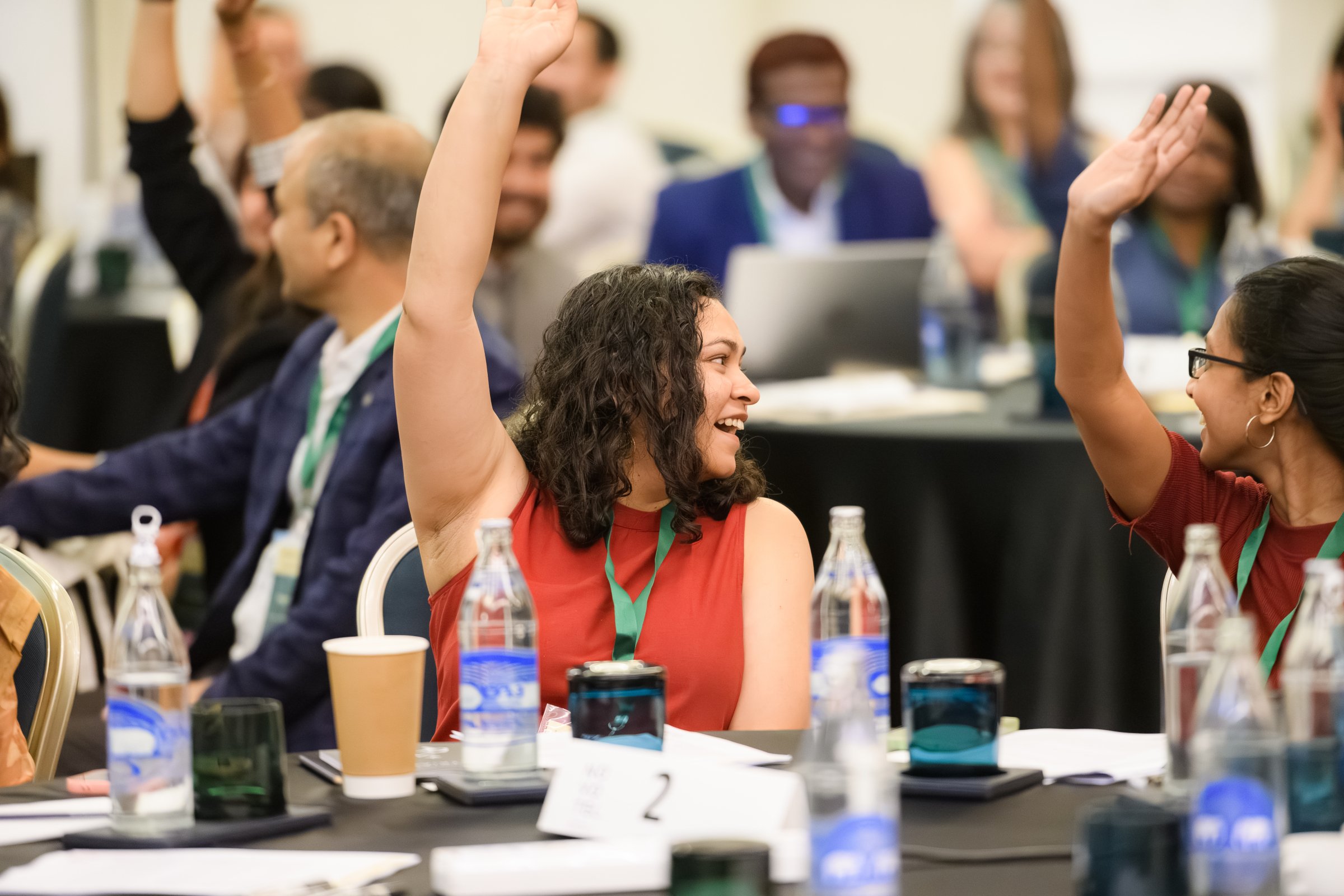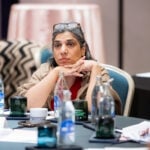
Gender Equality as the Lever for Education Transformation: Reflections from Bangkok
Returning from the Bangkok Regional Action Workshop on Gender Transformative Education, Sidra Fatima Minhas, Education Out Loud’s new Gender Equality and Inclusion Advisor, shares insights on advancing inclusive and gender-transformative education across Asia–Pacific.
In August 2025, I joined a diverse group of civil society leaders, policymakers, feminist educators, and youth activists in Bangkok for the Asia–Pacific Regional Action Workshop on Gender Transformative Education (GTE). Organized by the Feminist Network for GTE (FemNet4GTE) and Asia South Pacific Association for Basic and Adult Education (ASPBAE), the gathering was not just another policy dialogue. It was a moment of reckoning for education in a region facing multiple crises.
National Education Coalitions across Asia and Pacific were among the participants, sharing strategies and lessons on advancing inclusive and gender-transformative education in some of the most challenging contexts. Since I recently joined the Education Out Loud programme, I found it particularly valuable to see how many of the issues highlighted in the workshop resonate closely with the themes that Education Out Loud is also engaging with.
According to United Nations Economic and Social Commission for Asia and the Pacific, Asia–Pacific will achieve only one-third of the progress needed toward the SDGs by 2030. For SDG4, the situation is worse: 754 million adults remained illiterate in 2024, with women accounting for 63 per cent of the total. At the same time, conflict, climate disasters, and anti-rights movements are eroding hard-won progress. These figures framed every conversation in Bangkok, reminding us why we cannot afford business as usual.
Policy spaces: from access to influence
One of the clearest threads across the workshop was that policy spaces matter only if they deliver change. National Education Coalitions and partners have worked hard to secure places in Local Education Groups, regional mechanisms, and global forums, but presence alone is not enough. Discussions pointed to Nepal, where recurring natural disasters have strained education systems – yet civil society has remained a consistent voice for inclusion and accountability. The lesson was sobering yet urgent – access without influence risks becoming tokenism
For coalitions across the region, the demand is not just to be consulted but to shape policies, financing, and monitoring frameworks in ways that make systems genuinely inclusive.
Financing: the test of credibility
If participation is the doorway, financing is the test of credibility. In Bangkok, the issue of gender-responsive budgeting (GRB) sparked intense debate and emerged as one of the single most critical concerns. While governments acknowledge gender equality on paper, the reality is that commitments rarely appear as line items in budgets.
This gap is not abstract. It determines whether girls have safe toilets at school, whether children with disabilities find ramps and accessible classrooms, and whether rural learners can travel safely. These are not policy slogans; they are funded – or unfunded – choices. Civil society leaders in the room were clear: until budgets reflect these realities, promises will remain hollow. Advocacy now has to move from policy language to financing demands.
This is also why Education Out Loud supports coalitions in their advocacy for gender-responsive financing – helping ensure equity commitments are translated into real budgets and accountability
The new frontiers of exclusion and opportunity
While financing issues dominated, the Bangkok discussions also forced us to confront the frontiers where the next generation of inequalities will be decided.
- Digitalisation and AI: Youth voices carried a strong warning. Technology can widen access, but it can also reinforce exclusion. The stark reality from Papua New Guinea – only 3 of 10 million people are active internet users —illustrates how digital gaps mirror and multiply social divides. If AI and digital education tools are not designed with inclusion at the centre, they will entrench bias instead of dismantling it.
- Education in Emergencies: Findings from the Education Research in Conflict and Protracted Crisis (ERICC) programme reminded us that in crisis contexts, girls are doubly at risk. From Bangladesh to the Philippines, conflict, displacement and climate change have interrupted schooling and learning. Here, civil society advocacy is not just about access; it is about survival and rights. If education responses are not designed with equity at the centre, emergencies will continue to erase the rights of the most vulnerable.
- Lifelong learning: Breakout sessions highlighted how absent this remains from policy priorities. Education systems in many places still treat learning as something that ends with school. Yet across the region, women seeking literacy, indigenous youth demanding recognition, and workers needing new skills are being left behind. Their right to learn does not expire with age.
These discussions linked back powerfully to the financing debate: without resources, these future-oriented priorities will remain sidelined. And without civil society pressure, they may never move onto government agendas at all.
What I carried home
Bangkok was intense. The statistics were daunting, and the political headwinds undeniable. Yet what I carried home was not despair but determination. I saw Pacific youth leaders challenging digital divides with ingenuity. I listened to women’s groups pressing for second-chance education. I heard coalitions from fragile contexts insisting on their right to be heard even when space is closing.
The resilience in that room reminded me why civil society matters: because it keeps pushing for what governments overlook, and because it dares to imagine transformation when others settle for incremental change. As I reflect, three imperatives feel urgent and interconnected:
- Invest in gender-responsive financing so that commitments translate into real, funded reforms.
- Protect civic space so coalitions can not only be present but be powerful in shaping decisions.
- Resource advocacy for the future – on AI, crisis response, and lifelong learning—so today’s blind spots don’t become tomorrow’s entrenched inequalities.
For me, Bangkok was a reminder that the fight for SDG4 will not be won by technical fixes alone. It will be won by courageous advocacy, gender-transformative policies, and solidarity across movements. The next five years will decide whether education in Asia–Pacific becomes truly inclusive – or whether millions remain left behind. Education Out Loud supports coalitions to ensure civil society voices shape policy and financing, and this focus on gender equality and inclusion will remain central as we move forward. The choice is not abstract. It is ours to make, and the time is now.
The Bangkok Regional Action Workshop on Gender Transformative Education was arranged by the Feminist Network for GTE (FemNet4GTE) and Asia South Pacific Association for Basic and Adult Education (ASPBAE) who put together this slideshow from the event. Photo: ASPBAE.

 Sidra Fatima Minhas,
Sidra Fatima Minhas,